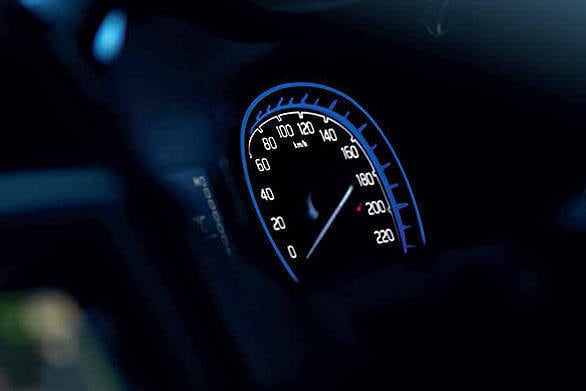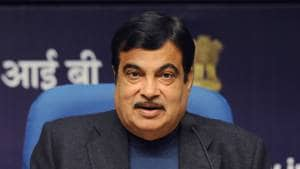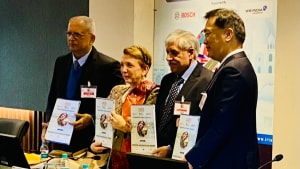Speed governors: Necessary or not?
A few years back, our Ministry of Road Transport and Highways passed an order in the interest of road safety, saying all passenger and goods vehicles must have speed limiting devices. But the government had to keep extending the deadline because many states were not prepared for it. And while some are now carrying out this order, several taxi unions, truck operators, transport bodies, etc, have opposed it and gone to the courts. A few judges have suggested that the government should reconsider the rule for at least those vehicles in which such speed-limiting devices or speed governors are presently not available. There is also the question of retro-fitment of these in older vehicles as it's a massive exercise and extremely difficult to monitor.

Recently, transport minister Nitin Gadkari said that he would soon do away with the mandatory requirement of speed governors as it encouraged corruption. He added his government was building six and eight lane highways, "so what is the need to restrict speeds". Some people have objected to this saying the government is giving in to transporter unions and taxi lobbies.
It remains to be seen what will be the outcome of all this, but despite the practical difficulties mentioned, this rule is being implemented in some states like Uttarakhand and Uttar Pradesh. They have ordered fitment of governors in all commercial vehicles and set the maximum limit at 80 kmph for buses, trucks and taxis and 60 kmph for school buses, dumpers and tankers.
Recently the taxi drivers in the hill state of Uttarakhand went on a sudden strike saying, "They were not against the fitment of devices in new vehicles, but it was difficult driving old vehicles on hilly roads without speeding up on the steep terrain". A lot of tourists were left stranded due to this strike and the government was forced to announce the postponement of mandatory fitment of speed governors in vehicles manufactured before October 1, 2015.
I have not driven a vehicle fitted with these speed governors nor do I have information on the way they function. But my deduction is that these speed governors actually restrict engine rpm to keep speeds in check. In the old days, most new cars sold in India came with a governor fitted on the carburetor, which limited opening of the throttle to prevent the engine from being run at high revs. Once the car had covered a few thousand kilometres and the 'running in' period was over, these governors were removed as the engine did not require such protection anymore.
Because these simple mechanical governors restricted the engine's capacity to rev, the achievable top speed was limited too. If the speed governors being fitted now are also operating on the same principle, then the taxi drivers are right. Their vehicles will feel underpowered and struggle to climb steep slopes. The solution is to have an electronic speed governor that works with the engine's ECU (electronic computer unit) to cut revs only when the vehicle crosses a specified speed like 80 kmph. But it should allow an engine to rev to it's redline and generate maximum torque in lower gears and at lower speeds. This way the vehicle would not feel underpowered or struggle to accelerate.
But is this the only problem with speed governors? Think again. A tourist taxi driver in Noida said something intriguing to me. "The government is making better roads and expressways, but now with this speed governor we feel fearful going out on the highway. As you know UP is infamous for its dacoits and robbers. With my speed so restricted, I am an extremely easy target because they can effortlessly overtake my taxi and force me to pull over. Why does the government not think of all this before making such rules". Yes, nothing is ever as simple as it appears in our country, because "Oh Darling Yeh Hai India".
With the fast approaching elections in 2019, the Modi government has upped the ante and is going flat-out to publicise its achievements. One thing they keep talking about is the 'Swachh Bharat Abhiyan' or 'Clean India Mission'. This is a truly commendable plan and I believe that the government has also achieved good results on overall sanitation, especially in rural areas. But take a drive around any of our cities or down one of our highways, and you will see that cleanliness is still appalling and in all likelihood even worse than it was.
Garbage is dumped in and outside every town and even in pristine farmlands or forest areas, you regularly come across huge heaps of rubbish. Many highways have also become places to discard construction waste. Most municipalities and local authorities have rules and regulations about construction debris disposal, but it appears everyone is conveniently turning a blind eye to this ever growing menace. And to such an extent that even the sides of some main roads in cities like Mumbai, are covered with construction waste.
Another great producer of trash is our toll booths. They issue a receipt to every vehicle for toll collected, which is promptly dumped by most drivers onto the road. But what really upsets me and gets me furious are the number of discarded empty beer and whisky bottles on our highways. It is evidence that many are still drinking and driving and that numerous passengers are also under the influence. It also establishes that lots of people come to highways to drink because the chances of them being seen or caught are almost non-existent.
The fact that they normally chose a pretty or quiet place to park only makes things worse. One thing I fail to understand though, is why do they insist on breaking the bottles? The sharp glass littered all over is not only hazardous for humans but also ends up harming and injuring the wildlife drastically.














